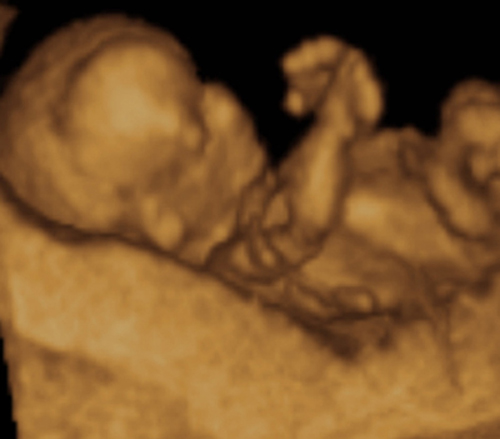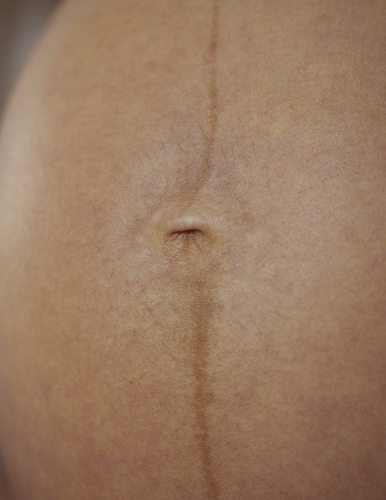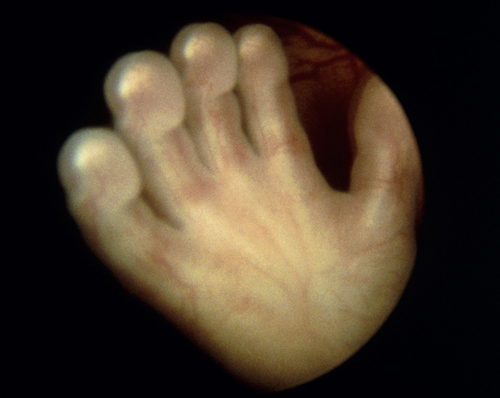You are 14 Weeks and 2 Days 180 days to go…
He’s well-developed on the outside, but complex changes are taking place as your baby’s internal organs continue to mature.
Your baby today
In this 3D ultrasound scan, the baby is lying on his back. The
arms and legs have lengthened and the baby is able to move them freely.
His head is still relatively large compared to the trunk and the
forehead bulges out.

Your baby’s neck is growing,
and he’s now looking more and more like a human being. Internally, the
thyroid gland first develops at the base of the tongue but gradually
moves down to lie in the neck, overlying the trachea (windpipe). The
thyroid gland is producing the hormone thyroxine, using iodine
transported from your body across the placenta. The baby’s kidneys are
starting to function. The nephrons in the kidneys are lengthening and
maturing: these essential units enable the kidney to function by
filtering the blood and eliminating waste from the body.
New nephrons will be
produced up until the 37th week and the kidneys continue to lengthen by
around 1 mm a week during the entire pregnancy.
Working during pregnancy
The majority of employers are supportive when they find out an employee is pregnant,
and hopefully this will be the case for you. However, should a problem
arise, there is employment law in place to protect pregnant women:
You can’t be fired during pregnancy, unless you breach the terms of your agreement.
You can’t be laid off
because you’re pregnant or on maternity leave. However, if the reason
for the lay off is a legitimate one, unconnected with your pregnancy, it
is allowed.
Your employer
has extra responsibilities when you’re pregnant, and these include
ensuring that your workplace is safe. For example, you should be
protected from handling or lifting heavy loads, standing for long
periods of time, or handling toxic substances.
If you need time off
for a pregnancy-related absence, your employer must hold your job for
you the same length of time that jobs are held for employees on sick or
disability leave.
… Doctor
| Q: |
I’ve developed a dark vertical line down the middle of my belly. What is this?
|
| A: |
This line is called the linea nigra, which occurs due to
changes in skin pigmentation. It’s extremely common, affecting 90
percent of all pregnant women in some way or another, and is often more
noticeable if you are darker skinned.
You may also notice a
darkening of the skin around your nipples and a darkening of freckles,
moles, or birthmarks. A few women may also experience brown patches on
their face called chloasma or the “mask of pregnancy” .
These changes are caused by the extra amounts of the hormone estrogen
during pregnancy, which affects the melanin-producing cells of the
skin—these cells produce the pigment that darkens the skin. These color
changes are normal and will usually fade once the baby is born.
|

You are 14 Weeks and 3 Days 179 days to go…
Feel free to talk to your baby. His ears have now developed to the point where he can hear your voice.
Your baby today
The hands are well developed at this stage, but, as can be seen
here, the skin is very thin and transparent, which means the developing
bones of the fingers and the blood vessels can be seen.

Around this point in the second trimester,
the bones of your baby’s inner ear have formed and he starts to hear.
Previously, your baby would have been able to feel the vibrations
created by noise, especially when you talked, even though he couldn’t
hear sounds. Research has found that when an unborn baby hears
something, his heart rate might change or he might move. You may be able
to feel your baby move in response to a certain noise or type of music.
Your baby can now hear
you when you talk to him, or when your partner talks to him (in fact,
babies are thought to be able to hear deeper male voices more clearly
than female ones), and when you give birth he will already be familiar
with the sound of your voices.
Animal magic
| Q: |
Do you share your home with a pet?
|
| A: |
Recent research shows that living with a cat or dog in early
childhood may reduce the risk of your child developing asthmatic
symptoms. The study found that children residing with cats were more
likely to have allergy-related antibodies to felines. Never leave your
baby alone with a dog or cat.
|

… Doctor
| Q: |
How can I relieve my constipation?
|
| A: |
Constipation is a common symptom of pregnancy, mainly because
the hormone progesterone slows down your bowel function, making
everything more sluggish. Many women exercise less than usual during
pregnancy, which can also cause things to become blocked. Finally, iron
pills, which may be prescribed for anemia, are notorious for causing
constipation.
There are, thankfully, many ways to relieve the problem:
Eat more fiber:
ensure that you are getting plenty of fiber in your diet, in the form
of fresh fruit and vegetables, and whole grains, and drink plenty of
water to aid the passing of stools. Go natural:
Psyllium (or ispaghula), a common ingredient in some laxatives, appears
to be safe during pregnancy, although studies in pregnant women have
not been done. Exercise regularly: Exercise during pregnancy helps to reduce constipation. Constipation during pregnancy can lead to itchy or painful hemorrhoids: If this happens to you, ask your doctor what medicines you can use for soothing relief. Don’t ignore the urge to go:
Ignoring the urge too often can lead to constipation. Take care of your
needs, even if you think you’re too busy to stop what you’re doing or
if it means that you’ll have to use a public toilet.
|